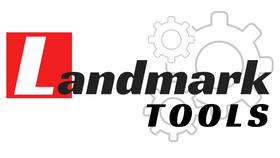What is a Shot Blaster?
A shot blaster is a machine that uses high-velocity abrasive media, called shot, to clean, strip, or finish surfaces. The shot is typically made of steel, aluminum oxide, or glass beads, and is propelled through a hose or nozzle using compressed air or a centrifugal wheel. The shot is directed at the surface to be treated, and the impact of the shot removes contaminants, coatings, or other material from the surface.
Shot blasting is a widely used process in various industries, including construction, automotive, aerospace, and manufacturing. It can be used to remove rust, paint, or other coatings from metal surfaces, to clean and prepare surfaces for painting or coating, or to create a textured finish on surfaces. It is an efficient and effective way to prepare surfaces for further treatment, and it can be done quickly and with minimal labor compared to other methods of surface preparation.
Shot blasters come in various sizes and configurations, and can be used on a variety of surfaces, including metal, concrete, and wood. They are often used in conjunction with other equipment, such as sandblasters, grinders, or power washers, to achieve the desired result. Shot blasting is a powerful and versatile tool that can be used in a variety of applications, and is an essential part of many industrial processes.
How do Shot Blasters work?
The shot blaster machine consists of a containment chamber, a shot-blasting wheel or impeller, and a hose or nozzle for directing the shot at the surface to be treated. The containment chamber is typically made of heavy-duty steel or other durable material, and is designed to withstand the impact of the shot as it is propelled through the chamber.
To operate the shot blaster, the operator first loads the shot into the containment chamber. The shot is then propelled through the hose or nozzle using compressed air or a centrifugal wheel, and is directed at the surface to be treated. The impact of the shot removes contaminants, coatings, or other material from the surface, leaving a clean and prepared surface behind.
Is Shot Blasting better than grinding?
Shot blasting and grinding are both methods of surface preparation that can be used to remove contaminants, coatings, or other material from a surface. Both methods have their own advantages and disadvantages, and the most appropriate method will depend on the specific application and the desired outcome.
One advantage of shot blasting is that it is a faster process than grinding. Shot blasting can cover a large area quickly and with minimal labor, whereas grinding is a more labor-intensive process that requires the operator to manually move the grinder over the surface. Shot blasting is also less prone to causing heat damage to the surface, as the shot does not come into direct contact with the surface as it does in grinding.
However, shot blasting may not be as effective as grinding at removing very hard or thick coatings or contaminants. Grinding can remove deeper layers of material and can achieve a smoother finish on the surface than shot blasting. Grinding is also more precise and can be used to create specific profiles or shapes on the surface.
In general, shot blasting is a good option for quickly preparing large areas for further treatment, while grinding is more suitable for precise, detail-oriented work or for removing very hard or thick coatings or contaminants. It is important to carefully consider the specific requirements of the application and choose the most appropriate method for the job.

























